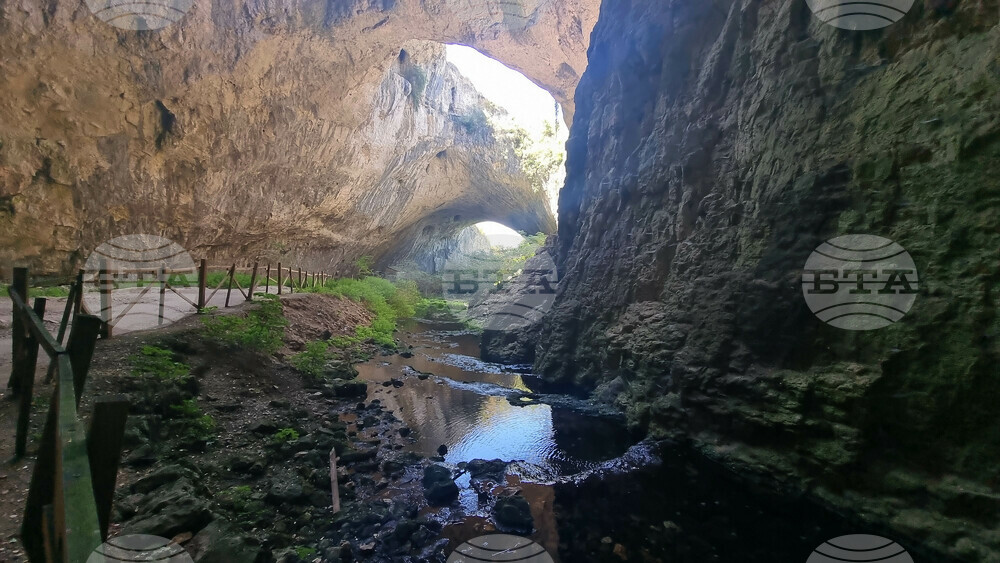site.btaGroundwater Is Bulgaria's "Golden" Reserve, Scientists Say


BTA sought the opinion of expert about the alternatives Bulgaria has in dealing with the water shortage. According to the head of the Hydrogeology Section at the Geological Institute of the Bulgarian Academy of Sciences, Assoc. Prof. Petar Gerginov, and his colleague Assoc. Prof. Dimitar Antonov, the alternative lies in the use of natural groundwater resources, which have increased in quantity in 30 years, from 175 cubic metres per second in the 1970s, to 193 cubic metres per second by 2016-2021. The country now uses about 17% of the available groundwater resources, the scientists told BTA's. Ekaterina Toteva and Valeria Dimitrova.
Their use, however, is going through the rise in the price of water due to the nature of their extraction, and there is a danger of a permanent reduction in the quantities in the settlements that are currently using them for water supply - for example, Northeastern Bulgaria. In this part of the country, the only possible source not only for drinking water but also for irrigation and industrial purposes is groundwater from deep aquifers, which is exploited by deep boreholes and pumps powered by a significant amount of electricity. The cost of water is therefore highest in these areas and there is a significant risk that groundwater supplies could be depleted, the scientists said.
For some of the 102 municipalities with compromised water supplies, however, groundwater use may be the only solution to permanently address the water shortage. According to the Ministry of Regional Development and Public Works, 325,087 Bulgarians continue to experience difficulties with access to drinking water, according to a report of the water and sewerage operators of the separate territories for the September 2-8 period.
The solution to the water crisis is linked only to long-term exploratory, technical and social solutions, the scientists believe. A strong and active National Geological Service would play an important role in much of this work, they said, conducting regional and local-scale studies not only of Bulgaria's geological structure but also of groundwater. The scientists pointed out that Bulgaria is one of the very few countries that does not currently have such a service. The preparation of a hydrogeological map of Bulgaria is now stalled. In the 1990s, the former Geology Committee acted as a geological service and started a large-scale programme to produce such a map. Hydrogeological maps were then produced at a scale of 1:25 000 for about a quarter of the territory of Bulgaria. With the closure of the Committee and the lack of a structure to replace it, this extremely useful activity has been halted, the scientists said.
Groundwater is also affected by climate change. So far, Bulgaria has seen declining levels in shallow aquifers and a reduction in the flow rate of springs, especially in karst terrains, with the decline in the order of 20 to 27%, the scientists said. At the same time, however, shallow groundwater levels increased by up to 68% in some places.
On average, about 17% of the available groundwater resources are used for drinking, industrial water supply, and agricultural production, and 2% go for personal needs of the population (wells in backyards), the scientists said, adding that this amounts to about 1.35 litres per second against an availability of 193 litres per second of the resource.
According to the European Environment Agency, within the European Union, 65% of water for drinking purposes and 25% for agricultural purposes is provided by groundwater. On the other hand, data from the Second River Basin Management Plans (2016) EU-27 show that 9% of groundwater bodies are in poor quantitative condition, the experts told BTA.
According to the basin directorates, most groundwater is formed in the Danube region, and the lowest values of natural resources have been determined in the West Aegean region. The most significant role of groundwater is in Northeastern Bulgaria, Dobrudzha , and Ludogorie.
Groundwater that is accessible from an engineering point of view or has the highest degree of usability, is groundwater that accumulates in underground water bodies made of unconfined Quaternary and Neogene materials with relatively shallower pore water (in the Danube lowlands - 39.3%, in graben depressions such as the Sofia or Sub-Balkan ones - 35.3%, and alluvial overlays of larger rivers - 27.9%). These areas also have more concentrated settlements, industrial enterprises and developed agriculture, the scientists said.
/DS/
news.modal.header
news.modal.text